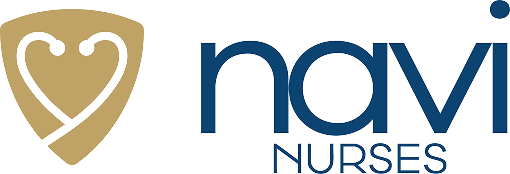It’s Okay to Ask for Help with Tube Feeding (Enteral Nutrition)
If you are struggling with tube feeding for yourself or a loved one, you are not alone. Caregivers often report feeling exhausted, suffer from sleep disturbances, and experience significant changes to their quality of life when tasked with administering enteral nutrition (Penner et al., 2012).
Nurses can help as they can play a crucial role in the management and administration of tube feeding. Common problems include: pain and tenderness at the site, leakage, blockages, equipment problems, or even general food intolerance (Johnson et al., 2019). All of these can be stressful to manage, but nurses can help troubleshoot them to help prevent you from going back to the hospital. Here are some ways in which nurses can help with enteral nutrition:
- Assessment and Planning: Nurses can assess a person’s nutritional needs and work collaboratively with dietitians and other healthcare professionals to develop a suitable enteral nutrition plan. They gather information about the patient’s medical history, current condition, and any dietary restrictions or allergies that need to be considered when selecting an appropriate enteral formula. It is common for people to not tolerate the traditional synthetic food blends, and with their holistic lens, nurses can help identify other products that can improve quality of life.
- Tube Placement and Assessment: Nurses are often responsible for the placement and insertion of enteral feeding tubes. They further ensure that the selected tube (e.g., nasogastric or gastrostomy tube) is properly inserted and can assess for any dislodgement. Nurses may also provide guidance and education to patients and their families on caring for the tube and recognizing signs of complications. They can provide the education and support needed to make everyone feel confident in administering enteral nutrition. In the event that a person or their family is overwhelmed, a registered nurse can be hired to come and provide the nutrition while also educating until all have mastered the skill.
- Formula Administration: Nurses are trained in the proper administration of tube feeding formulas. They can calculate the appropriate rate of administration, adjust the flow rate based on the patient’s tolerance and needs, and monitor the infusion to ensure a continuous or intermittent delivery as prescribed. Nurses also ensure the enteral feeding equipment is functioning properly and troubleshoot any issues that may arise. If changes are needed, they can directly arrange through the prescribing provider and the supplier of the equipment and food so you don’t have to worry about it.
- Monitoring and Assessment: Nurses regularly assess the patient’s response to tube feeding. They monitor vital signs, assess for signs of complications (such as aspiration, tube dislodgement, or infection), and evaluate the patient’s tolerance to the formula. For example, some people experience frequent diarrhea, while others may experience constipation which is equally impactful to quality of life. A nurse will also monitor the patient’s weight, fluid balance, and laboratory values to ensure that the enteral nutrition plan is meeting their nutritional needs.
- Education and Support: Nurses provide education and support to patients and their families regarding enteral nutrition. They explain the purpose and process of enteral nutrition, demonstrate proper tube feeding techniques, teach caregivers how to administer medications through the tube if necessary, and provide guidance on maintaining hygiene and preventing infections related to tube care. If needed, nurses can also help set tube feeding up, particularly for adults with arthritis that make drawing up the food in syringes difficult.
- Collaboration and Coordination: Nurses collaborate with other healthcare professionals, such as dietitians, physicians, and pharmacists, to ensure the enteral nutrition plan is optimized for the patient’s overall care. They communicate any changes in the patient’s condition or response to the enteral nutrition, facilitate adjustments to the feeding plan as needed, and ensure proper documentation and record-keeping.
Nurses play a vital role in the safe and effective management of enteral nutrition, ensuring that patients receive adequate nutrition and hydration while minimizing potential complications. Their expertise and ongoing monitoring contribute to the overall well-being of patients who require enteral feeding.
If you know that you or a loved one can benefit from extra nursing care and support, but are not quite sure about what is the best option, please call Navi Nurses and speak with a registered nurse at 480-482-1891. The nurses at Navi are happy to help you with the direction that you need to make the best decisions possible.
You can also read more about How to Find a Private Duty Nurse.







